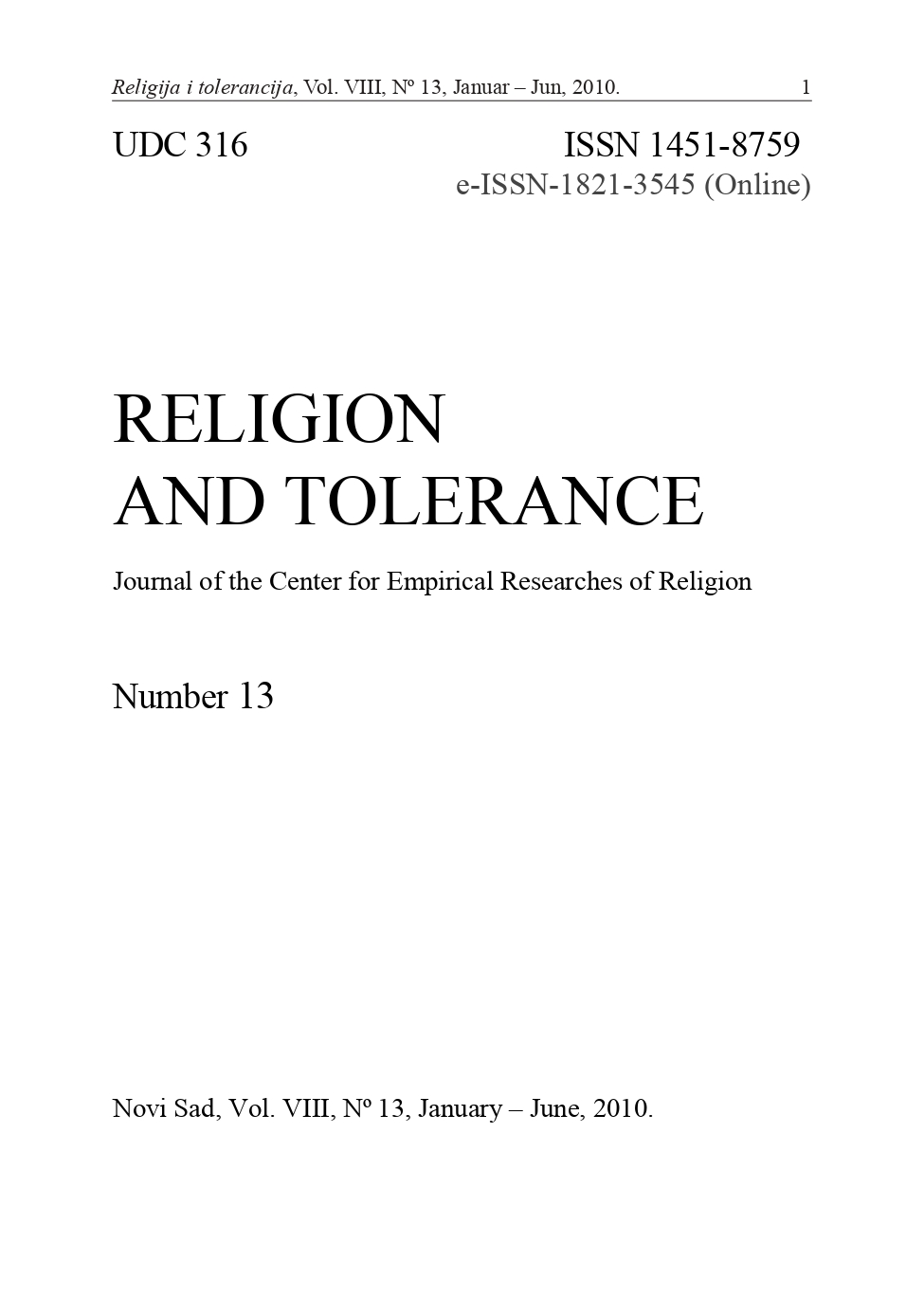НОВЕ РЕЛИГИЈЕ И РЕЛИГИЈСКИ ПОКРЕТИ КАО ИЗРАЗ ПОСТМОДЕРНЕ СУПКУЛТУРЕ И КОНТРАКУЛТУРЕ У САВРЕМЕНОСТИ
NEW RELIGIONS AND RELIGIOUS MOVEMENTS AS AN EXPRESSION OF THE POSTMODERN SUBCULTURE AND COUNTERCULTURE IN THE CONTEMPORARY WORLD
Author(s): Ljubisa M. MitrovicSubject(s): Theology and Religion, Sociology of Religion
Published by: Centar za empirijska istraživanja religije (CEIR)
Keywords: dececularization; postmodern culture; new religions; new religious movements; sociology of religion; sociology of social movements
Summary/Abstract: The new religious movements that have appeared during the last three decades are progressively becoming an important object of interest in the sociology of religion and the sociology of social movements. They represent an expression of the crisis of the modern culture and the emergence of the postmodern one, as well as of the new sensibilty of the younger generations and of the global processes of restauration and desecularization that have been around since the 1970s. The paper is based on the following (hypo)thesis: on the one hand, the fenomenon of decularization is linked to the historical restauration that has occurred in the last 20 years, and, on the other hand, the emergence of the new religions and religious movements is an expression of the creation of the postmodern culture and the new sensibility of the young generation, which is not satisfied with traditional religions and ''grand'' dogmas, but, in an era of globalization and the networked information society – searches for new perpectives of the world, for new cults, for new cultural patterns and values, and new pluralistic religious forms. The paper focuses on the changes in the postmodern culture and in the social status of man in the contemporary world, as well as on the research of the metamorphosis of the religious identity and the perception of the world by the young generation, whose focus has shifted from the traditional to the modern/postmodern culture, from the local to the global, from the banality of everyday life to the lure of the unknown and the new challenge posed by the ,,society of spectacle''. The author sets to explore that flight of the young generation away from traditional religions and its temples to new forms of religious life and social utopia. The author concludes that the future of mankind will see the rise of new religions and religious movements, and predicts that all the major traditional religions apart from Islam (that continues to spread because of the demographic spreading of the population believing in it) will start to decline. The paper puts forward the view that the sociologists of religion and of social movements are justified in their intention to make new religious movements a valid field of their further research.
Journal: Religija i tolerancija
- Issue Year: 8/2010
- Issue No: 13
- Page Range: 27-42
- Page Count: 16
- Language: Serbian

